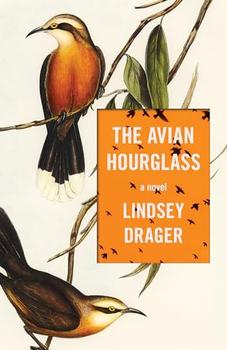Summary | Excerpt | Reviews | Beyond the Book | Readalikes | Genres & Themes | Author Bio

New Rules for Everyday Foodies
by Tyler Cowen
Total cost for breakfast: $3
On my way out of the food market I bought a baked good, halfway between a cookie and bread, with something slightly sweet on top. I'm not so good at figuring out the contents of baked goods, in part because I don't bake, but these items were justifiably popular with the residents of León. A lot of other people were buying them too. The price is included in the three-dollar sum above.
I had eaten three delicious meals and the expense had been minimal. But maybe the highlight of the trip was during another cab ride, when I offered the driver some extra money to take me to a tamale stand.
He had a hard time finding one, as most of the tamale sellers close by the afternoon, when the product is no longer fresh. After about ten minutes of driving around neighborhoods, we came across a woman transporting a basket of tamales on her head. We stopped and I bought a corn tamale from her, and also bought a tamale for the driver.
The two tamales cost 20 córdobas, or about one dollar. I had no bill smaller than 50 córdobas and the woman had no change. We were in the middle of a residential neighborhood with no one in sight and no store nearby. I insisted that she keep the change and that I was pleased to have my sweet corn tamale. She refused. I asked again. She refused again. So I had to wait ten minutes in the cab while she went off to find change for the bill. At least I had a home-cooked tamale to eat - and it was probably my best meal in Nicaragua.
I can't say I proved the hypothesis about the corn and the cream being the keys to the cuisine, but at the end of my four-day trip I had a lot of confirming evidence. Only one of my meals in town, this time seafood, was less than excellent and led to a new hypothesis. It needs further field testing, but here goes:
When donkey carts are common and women carry baskets on their heads, eat your fish right by the ocean or lake.
Another way of putting it is that if transportation is slow, and refrigeration is a recent innovation, fish and indeed any seafood you find as little as ten miles from the water won't taste so good.
Food Snobbery
As it stands, food writers, commentators, and foodies are misled by three doctrines, useless in Nicaragua, useless at home, and misleading almost everywhere else:
Taken together these views constitute our generation's food snobbery. These prejudices are apparent in gourmet food magazines such as Bon Appétit and the now defunct Gourmet, in anti- agribusiness documentaries such as Food, Inc. and Super Size Me, and in restrictions on food carts, street food, nonpasteurized cheeses, and the numerous government interventions that stand between us and better, cheaper food. Author Michael Pollan, who has made some valid arguments about food in the modern world, tells us to leave food on our plate in his most recent Food Rules. I say, find or make good food - and eat it.
For all the lofty rhetoric about "locavores" and "slow food," this food snobbery is pessimistic, paternalistic, and most of all it is anti-innovation. Neither the consumer nor the businessperson is trusted to innovate; there is a false nostalgia for primitive agriculture, based on limited transportation and the arduous conversion of raw materials into comestible commodities. Rarely is it admitted, much less emphasized, that cheap, quick food - including its embodiment through our sometimes obnoxious agribusiness corporations - is the single most important advance in human history. It is the foundation of modern civilization and the reason why most of us are alive. Before there was an Industrial Revolution, which eventually brought the conveniences of modern life, there was an Agricultural Revolution, which created a large enough social surplus to make further economic development possible. It enabled us to pull people off the farm and employ them as scientists, engineers, inventors, and entrepreneurs.
Excerpted from An Economist Gets Lunch by Tyler Cowen. Copyright © 2012 by Tyler Cowen. Excerpted by permission of Dutton. All rights reserved. No part of this excerpt may be reproduced or reprinted without permission in writing from the publisher.




They say that in the end truth will triumph, but it's a lie.
Click Here to find out who said this, as well as discovering other famous literary quotes!
Your guide toexceptional books
BookBrowse seeks out and recommends the best in contemporary fiction and nonfiction—books that not only engage and entertain but also deepen our understanding of ourselves and the world around us.